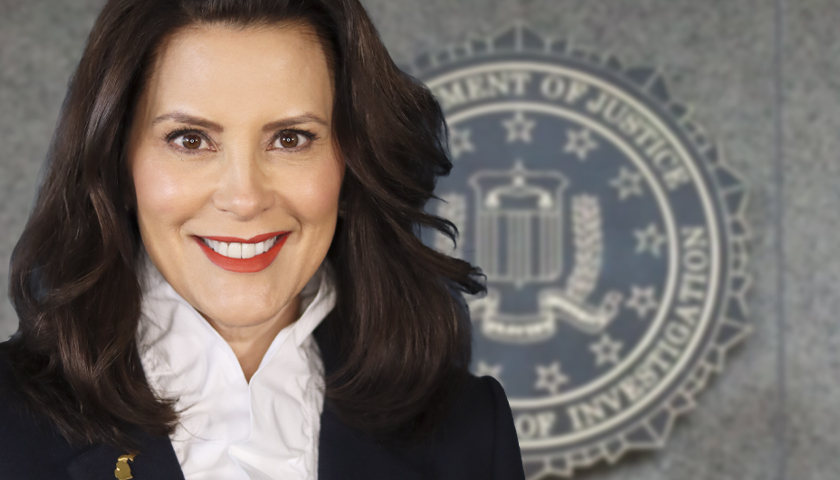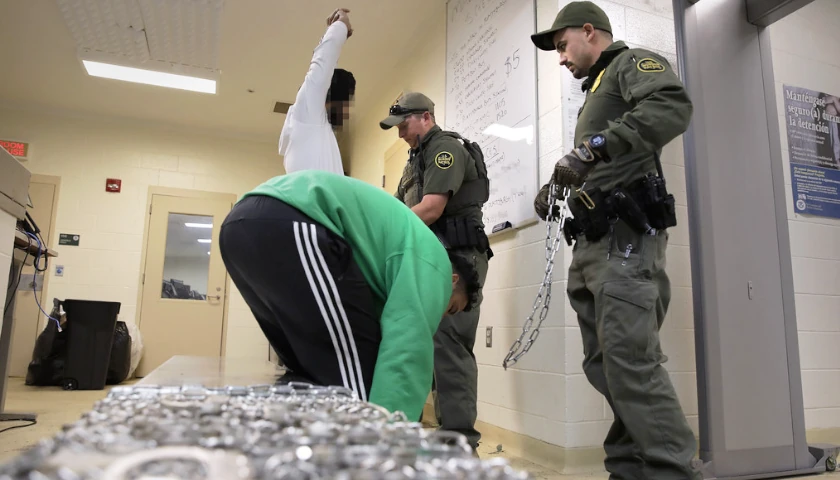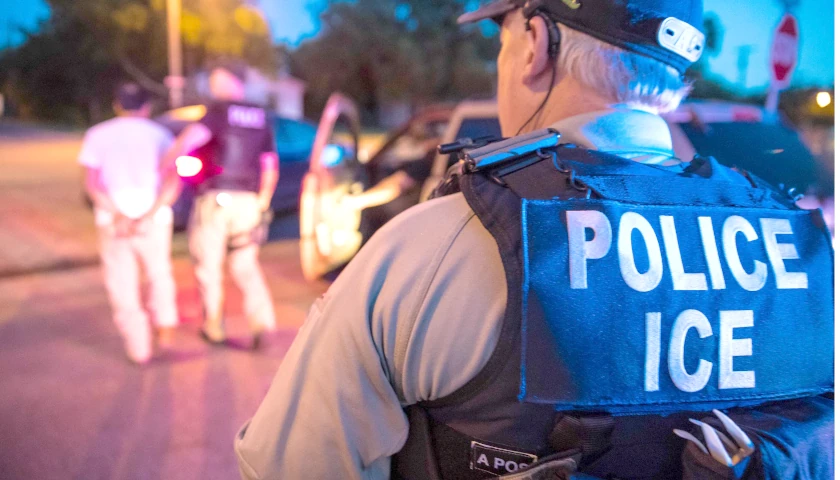by Julie Kelly
The media went wild last week after Joe Biden’s Justice Department finally produced a criminal indictment to support the claim that January 6 was an “insurrection” planned by militiamen loyal to Donald Trump: Eleven members of the Oath Keepers, including its founder, Stewart Rhodes, face the rarely used charge of seditious conspiracy for their brief and nonviolent involvement at the Capitol protest that day.
Journalists luxuriated in the news, jeering those of us who had correctly noted that the Justice Department had failed to charge anyone with insurrection or sedition for more than a year.
But the press does not share the same zeal in covering another politically charged investigation: the imploding criminal case against five men accused of plotting to kidnap Michigan Governor Gretchen Whitmer in 2020. The kidnapping narrative shares many similarities with their preferred telling of January 6, not the least of which is that alleged militias incited by Trump attempted to carry out a domestic terror attack.
Despite wall-to-wall coverage after the charges in the Michigan case were announced right before Election Day, the corporate media has almost completely memory-holed the abduction caper. Stewart Rhodes is a household name; Stephen Robeson, a convicted felon and the chief FBI informant in the Whitmer case accused of all sorts of malfeasance, is not.
The reason, of course, is that exposing how the FBI set a trap to lure down-on-their-luck men—one of the codefendants referred to Adam Fox, the alleged plot leader, as “Captain Autism”—into their kidnapping ruse would run afoul of the media’s insistence that the government had nothing to do with the events of January 6, despite plenty of proof that hundreds of FBI agents and informants were involved before and during the Capitol protest. (A top FBI official recently refused under oath to say whether FBI agents or assets engaged in or incited violent criminal behavior on January 6.)
Perhaps the media considers it a mere coincidence that the head of the FBI Detroit field office overseeing the Whitmer plot was promoted to head of the FBI Washington, D.C. field office several weeks before January 6?
Defense attorneys in the Whitmer case are making a strong case for FBI entrapment, detailing egregious misconduct by the agency, and asking a judge to dismiss the charges. At least a dozen FBI agents and confidential human sources orchestrated the kidnapping scheme; defense attorneys claim the feds “actively planned and coordinated its efforts to induce the defendants to engage in incriminating behavior and statements, even going so far as designing the objective and structural components of the [kidnapping] conspiracy.”
In a stunning move, defense lawyers now want prosecutors to offer immunity not to their clients but to FBI agents and informants. A new defense filing took the rare step of asking the judge to order the Justice Department to offer “use immunity” to every FBI asset involved in the plot. Fearing they will invoke their Fifth Amendment right against self-incrimination in court, defense attorneys are attempting to compel testimony that would be immune from prosecution, except charges of perjury.
John Kiyonaga, a D.C. criminal defense attorney representing a few January 6 defendants, told me over the weekend that the request is “mind blowingly rare.”
Prosecutors are desperate to conceal the FBI’s animating, and likely criminal, role in the Whitmer plot. The Justice Department notified the court in December that three of the top FBI agents on the case—including Richard Trask, the FBI investigator who signed the criminal complaint against the federal defendants in October 2020—have been removed from the government’s witness list. (The trial is set for March 8.)
Trask, in fact, was fired by the FBI—a near-impossible feat—after he was arrested for assaulting his wife in a drunken rage following a swingers party last summer. Reporters also discovered several anti-Trump tirades posted on Trask’s social media accounts.
“The investigation in this case was based primarily on the efforts of FBI agents and confidential human sources,” wrote Scott Graham, the attorney representing Kaleb Frank, one of five men facing conspiracy to kidnap charges, punishable by a life sentence. “Normally, these people would testify at trial and would answer relevant questions posed by both sides to the case. The entrapment defense directed at both groups would be argued by the parties and decided by the jury. This case, however, is different from most. It is now apparent that a number of both the agents and sources have reason to refuse to testify by invoking their Fifth Amendment rights against self-incrimination.”
Prosecutors also don’t plan to call on Stephen Robeson, the informant who coordinated every surveillance and training trip related to the caper. Not only has Robeson been charged with committing at least two crimes while working the Whitmer plot, the Justice Department accuses him (implausibly) of acting as a “double agent.”
Defense attorneys aren’t buying the government’s latest excuse to keep Robeson, a longtime FBI source, off the witness stand. Robeson’s testimony, the defense argues, “will establish repeated violations of FBI policies in handling [informants], making it both exculpatory and essential.”
The defense also wants to show the jury at least 258 examples of recordings and communications between the informants and their FBI handlers to show how the agency directed every aspect of the attempted kidnapping. Prosecutors claim the statements are “hearsay” and don’t want jurors to see them.
So, what would their unvarnished testimony and captured communications likely reveal? That without the elaborate involvement of the FBI, which compensated the lead informant at least $50,000 for six months’ work and funded every outing to produce photographic evidence of the defendants’ participation in weapons training camps and reconnaissance missions, the plot never would have made it past idle chatter.
It likely would show how the FBI infiltrated alleged “militia groups” and even lured people into those groups beginning in early 2020 under the guise of monitoring potentially violent anti-lockdown rallies.
Evidence would expose how a lockdown rally at the Michigan Capitol building in April 2020 acted as a dress rehearsal for January 6, and how the FBI steered the defendants from more lockdown protests to the kidnapping plot.
The jury also would hear how Stephen D’Antuono, the director of the FBI’s Detroit field office, handled his agents executing the caper and how he was swiftly rewarded for his work. After his office successfully produced damaging headlines for Donald Trump right before the election, D’Antuono was promoted to head of the FBI’s D.C. office just three months before the Capitol protest.
Unsurprisingly, prosecutors have already told the defense that they have no intention of offering immunity to their now-tarnished star government witnesses. It’s unlikely a judge will avoid interfering in what is the sole purview of the Justice Department to offer immunity deals.
But watching these FBI agents and informants repeatedly plead the Fifth on the stand may be as revealing as any protected testimony.
– – –
Julie Kelly is a political commentator and senior contributor to American Greatness. She is the author of January 6: How Democrats Used the Capitol Protest to Launch a War on Terror Against the Political Right and Disloyal Opposition: How the NeverTrump Right Tried―And Failed―To Take Down the President. Her past work can be found at The Federalist and National Review. She also has been featured in the Wall Street Journal, The Hill, Chicago Tribune, Forbes, and Genetic Literacy Project. She is the co-host of the “Happy Hour Podcast with Julie and Liz.” She is a graduate of Eastern Illinois University and lives in suburban Chicago with her husband and two daughters.
Photo “FBI headquarters sign” by J CC BY 2.0.






[…] had better have more credibility than Andrew McCabe, Peter Stzrok, Kevin Clinesmith, or any of the three agents that have been removed from the Whitmer kidnapping witness […]
[…] better have more credibility than Andrew McCabe, Peter Stzrok, Kevin Clinesmith, or any of the three agents that have been removed from the Whitmer kidnapping witness […]